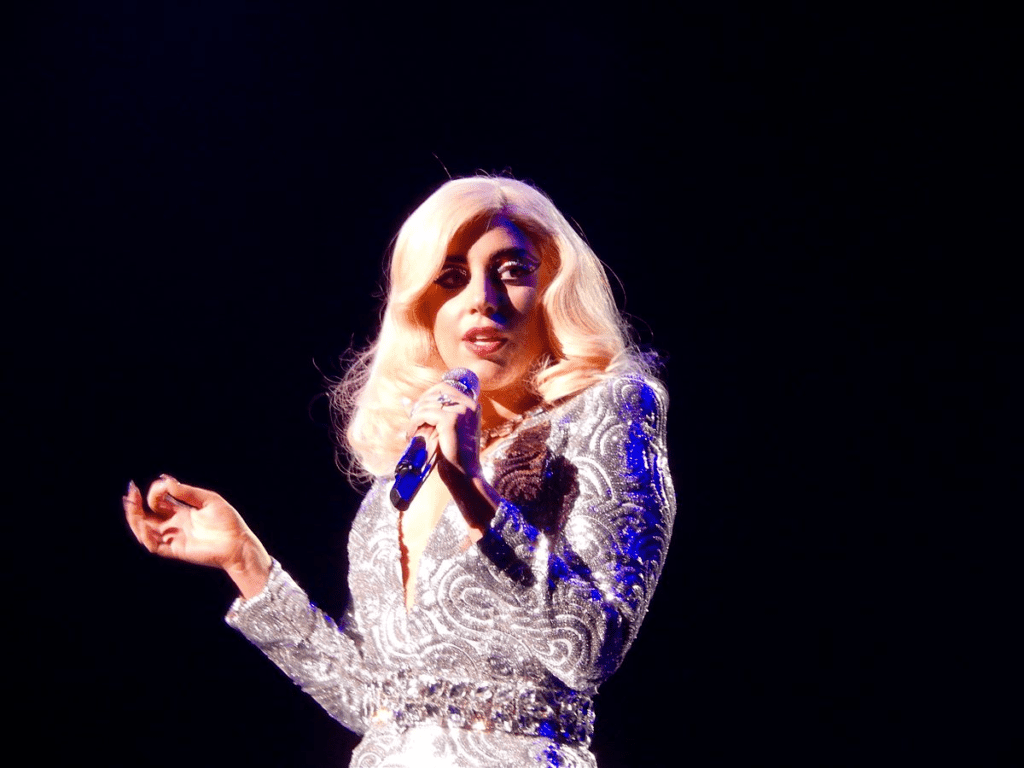Five years since the release of Todd Phillips’ critically acclaimed Joker, we are back in Gotham with the highly eagerly awaited sequel, Joker: Folie à Deux. The first film, starring Joaquin Phoenix as Arthur Fleck, was a dark, unsettling pastiche of Scorsese films: a mash of Taxi Driver and The King of Comedy in which the thing that was always scary in clown makeup turned a performance of tragedy. While the first film hauled in near-universally great reviews, with some touting it as a work of art, others-like myself-found it incredibly overhyped and not at all worth the adoration it received. It felt to confirm the awards-season tendency of praising a so-called “comedy” that is utterly not humorous, substituting humor for insistent intensity and darkness.

Now comes the sequel, which, if flawed, tries to bring something new by going in a bold musical direction. Though at times labored and flat, Joker: Folie à Deux incorporates musical numbers, an interesting structure the first movie did not boast of. Contributing to his performance, Phoenix returns now incorporating musical performances into his Joker à la Dennis Potter’s Pennies from Heaven, in which the characters sing their inner emotions by way of show tunes. This brings a different energy but is not quite enough to really lift the picture.
In walks the undeniably sensational talent of Lady Gaga as Harleen Quinzel-a.k.a. Harley Quinn-a disturbed psychiatric patient who meets Arthur in a prison music therapy session. A very strong introductory role for Gaga, but here, her character development is nothing compared to the emotional depth she brought with A Star Is Born. She quickly falls in love with Arthur, setting up an intense-but-troublesome bond between the two. They’re a narcissistic dynamic duo, but it’s anyone’s guess if this is what the filmmakers were going for.
The best parts of the film happen at the beginning as it opens up with a mock Warner Bros. Looney Tunes cartoon detailing the prior events before moving into an action-packed prison sequence. Arthur, played by Phoenix, is in prison awaiting his trial for the murders he committed, and he gets to play off of an incredibly strong supporting cast. Brendan Gleeson plays a wittily unsuspecting prison guard, Catherine Keener is Arthur’s tough lawyer, and Steve Coogan briefly yet memorably pops up as a tabloid interviewer. Zazie Beetz has also returned in a fleeting reprise as Arthur’s former neighbor, reminding one of the fluidity with which brief relationships have crossed his life.
It’s when they finally meet, in that very peculiar “meet-uncute” fashion, inside the Gotham jail-the spark between Phoenix and Gaga is undeniable. The repetitious claustrophobic settings of the film dull this chemistry. The leads are parted ways for quite extensive stretches; though moving, Phoenix tends to feel one-dimensional in parts, as powerful as his performance might be. He acts with all his intensity, but there seems to be a lack of emotional depth from his character due to the apparent internal turmoil at which it can never seem to escape.
This whole drama in the film is about Arthur’s trial, while his lawyer, Maryanne Stewart-a role played by Keener-tries to argue that such a traumatic upbringing has made him mentally disturbed and needing treatment, not punishment. On the opposite side stands the district attorney, Harvey Dent, played by Harry Lawtey, who insists that Arthur is sane and deserves to go to the electric chair. He’s torn between the insanity plea from his lawyer and embracing his Joker persona, and the identity crisis is strong. That violent alter ego brought him infamy and fear and love in the form of Harley, but it could get him killed.
Gaga is great at times as Harley with that subtle, manipulative malice in her character. That makes her character more disturbed than Arthur’s, yet it isn’t elaborated on very well within the script; hence, her character is a little underdeveloped. In partial developments, there are shades of her being a Lady Macbeth-like figure to DC villains; this potential remains largely unrealized. The pacing falls off by the film’s final act; viewers will become restless, awaiting twists or revelations that never seem to materialize.
As it lurches toward its finale, Joker: Folie à Deux really labors under the weight of its own self-importance. It demands mythic status for itself, yet in doing so, it sacrifices so much raw emotional heft that could have better sold the story. An electric performance from Lady Gaga gives the film a much-needed jolt, but the narrative falters as the audience craves more depth, humor, or even tragedy that feels earned.
At the end of the day, Joker: Folie à Deux has some memorable moments amid a mediocre storyline, for which much credit goes to its cast, but it never hits the mark it should. Could Gaga’s Harley Quinn lead her own adventure in the future? The prospect certainly is enticing. Now, the sequel leaves much to be desired despite flashes of brilliance it sometimes offers.








